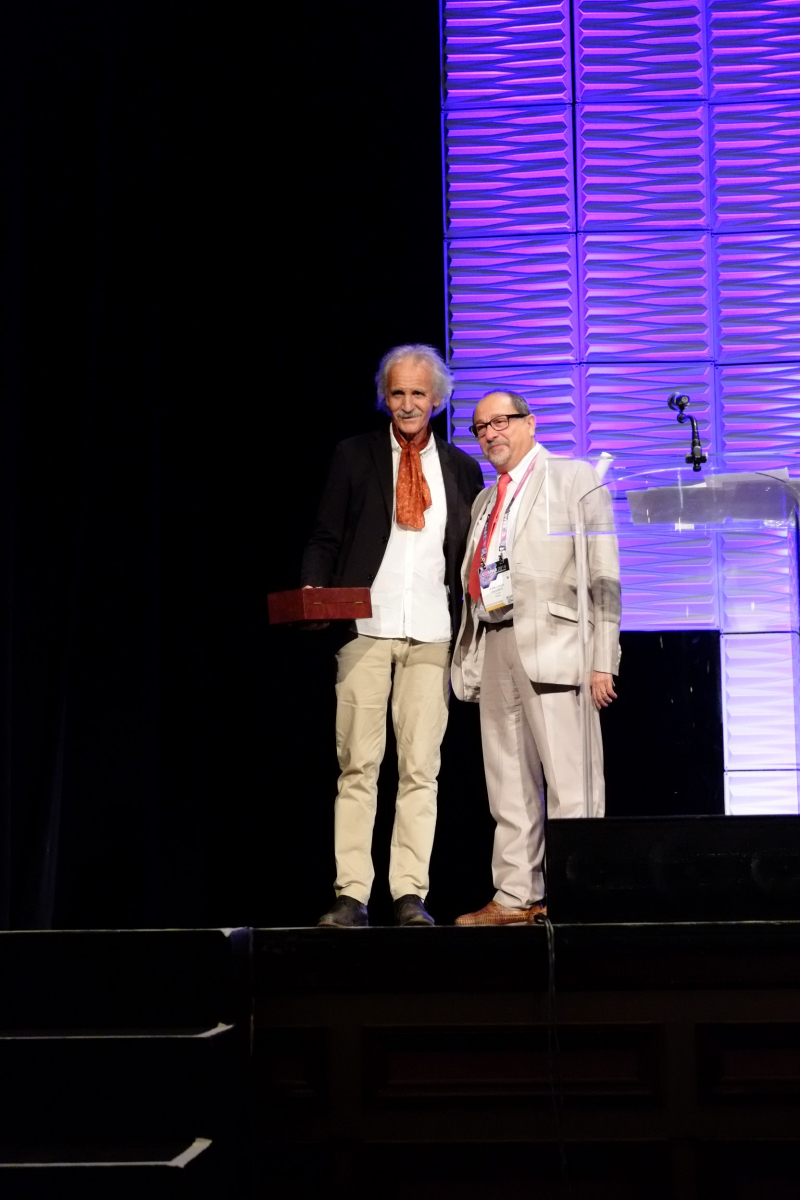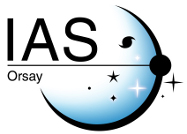Jean-Pierre Bibring a reçu le COSPAR Space Science Award
Jean-Pierre Bibring, professeur émérite à l’Institut d'Astrophysique Spatiale (CNRS/Université Paris Sud), a reçu le 15 juillet 2018 le prix COSPAR Space Science Award pour ses contributions à l'exploration spatiale du système solaire. Cette médaille est la plus prestigieuse du COSPAR (Committee on Space Research) et remise à chaque assemblée générale bisannuelle. Parmi les nombreuses implications de Jean-Pierre Bibring, le COSPAR a notamment mis en avant ses responsabilités dans Mars Express et Philae/Rosetta.
Voici le communiqué de presse publié par le COSPAR :
COSPAR Space Science Award: Jean-Pierre Bibring (France)
What are the processes that paved the history of terrestrial planets? What has modelled their present uniqueness, primarily that of the Earth? How has life emerged on Earth? Has life emerged elsewhere? Throughout his career, Jean-Pierre Bibring has addressed these questions, building the relevant instruments and placing them on board a variety of space missions primarily aimed at Mars, and unravelling the history of the planet from his pioneering diagnostic measurements. In particular, Jean-Pierre Bibring has developed Spectro imagers operating in the infrared, embarked in a wide series of space missions, Russian, European, American and Japanese. Of prime importance is the OMEGA investigation he still leads, on board the ESA Mars Express mission: for the first time, high-resolution imaging and spectroscopic capabilities were coupled in one instrument, enabling a global coverage at sub kilometre resolution, with the composition in each pixel characterized, both of surface and of atmosphere. One of the key OMEGA discoveries is that of minerals resulting from the aqueous alteration of the surface of Mars, in a sequence going from phyllosilicates (clays) to sulfates, recording the evolution with time of the Mars environment and revealing the role played by water. A critical outcome is the indication that Mars might have harboured "habitable" conditions in its very ancient past, soon after the planet formed. In addition, Jean-Pierre Bibring is one of the two Philae Lead Scientists, responsible for the overall operations and scientific activity, coordinating 10 PI investigations. Landing on a totally unknown object, with very limited means to cope with (and to react to) the actual situation, and yet achieving the pioneering in situ characterization of the most pristine solar system material: Philae undoubtedly constitutes one of the most challenging and seminal space ventures ever undertaken.
Coupling instrumental experience to a conceptual approach, Jean-Pierre Bibring has made major discoveries in planetary and solar system science. In addition, given his strong implication in future asteroid and Mars missions, he has a great potential for future discoveries. He is a worthy recipient of the COSPAR Space Science Award.
|
|
 |
| Jean-Pierre Bibring (à gauche) et le directeur exécutif du Cospar Jean-Louis Fellous (à droite) | |




